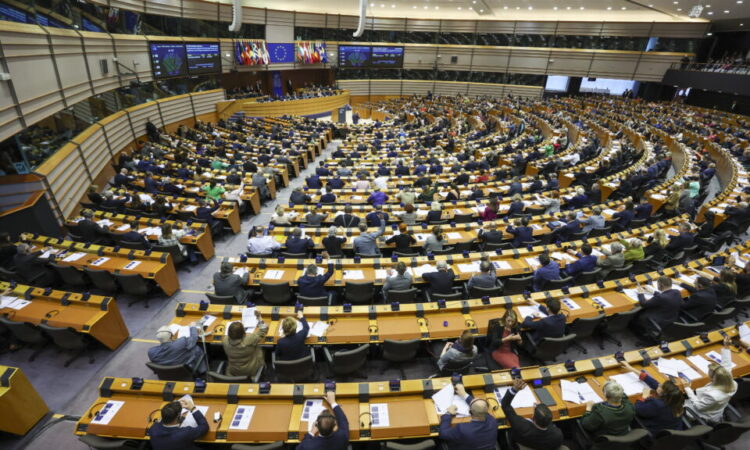
The next heads of the European Union will have to give answers to major challenges, focusing on the competitiveness of the European economy, and Greece could benefit significantly by participating creatively in the negotiations in a new role, away from the her troubled past, financial analysts tell Kathimerini.
They highlight the major issues that are open for negotiation after Sunday’s European elections (and which, by the way, hardly occupied the pre-election debate in Greece). And yet, as the president of the Council of Economic Experts, professor Michalis Argyrou, says, for the first time the identification of the European agenda and Greek interests is so great.
Conflicts between North and South, large and small countries, but also conservative, populist and center-left forces are foreshadowed by the positions that have already begun, in view of decisions by the next leadership of the EU, the European Parliament and the Commission.
As the general director of the Foundation for Economic and Industry Research (IOBE), Professor Nikos Vettas, points out, the dominant issue is actually the underdevelopment of the European economy, which can acquire more permanent characteristics by affecting political developments as well.
Among the big issues expected to get on the table are the following:
– The new fiscal framework that comes into effect next year is a return to fiscal discipline. Member states will be invited on June 21 by the Commission to draw up four-year plans, an important element of flexibility, as pointed out by the coordinator of the Parliamentary Budget Office, Professor Yiannis Tsoukalas. However, they will be ambitious goals and not easily applicable by all countries.
– The continuation or not of the Recovery Fund, after 2026, with new content, mainly the support of the green transition. The debate has already heated up, as it is certain that many projects of the existing Fund will not have time to be completed, while there is also a huge investment gap mainly for the green investments required for the EU to succeed. its goals, but also for the digital ones.
– The integration of the capital markets and the banking union. The capital markets backlog dates back to 2015, but it is now clear that fragmentation is driving European industries to seek capital abroad. As the competent commissioner Mairead McGuinness said, the German Birkenstock turned to the New York Stock Exchange.
– The support of the European defense and the defense industry in combination with the development of the war in Ukraine.
All of the above issues are more or less related to the need to strengthen the competitiveness of the European economy, which has been severely tested in recent years and is predicted to continue to be under pressure from China and the US. The German automobile industry is a typical example, as the president of KEPE, Professor Panagiotis Liargovas, commented.
On the topic of competitiveness, the report of the former Italian prime minister and former president of the European Central Bank, Mario Draghi, is awaited with interest. He has already foreshadowed his views in a recent speech.
Europe suffers from fragmentation: The five biggest “players” control 80% of the defense industry market in the US, compared to 45% in Europe. Also, Europe has 34 mobile network groups, compared to three in the US and four in China. In short, Draghi is expected to call for more integration and cooperation.
However, what constitutes the biggest challenge – always – is finding sources of funding for the implementation of any decisions. The conflicts here are predicted to be intense.






